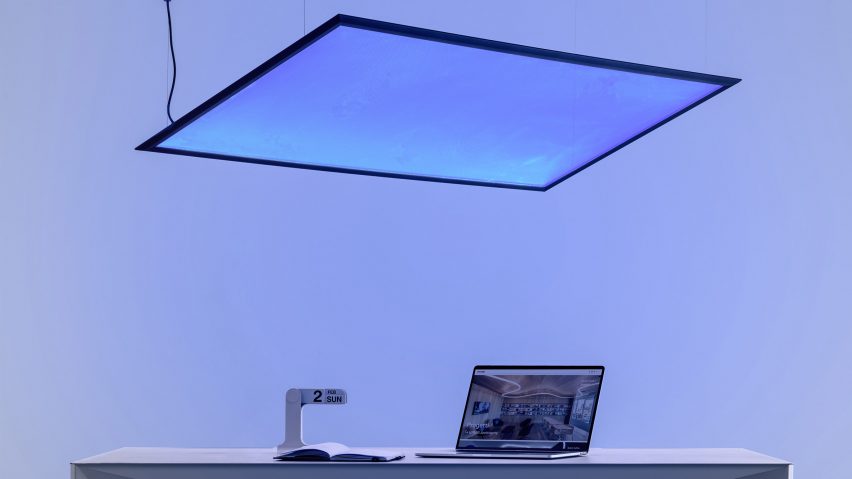
Artemide unveils Integralis ultraviolet technology that transforms lights into sanitisers
Italian lighting brand Artemide has developed a way of turning lamps into room sanitisers that emit antiviral ultraviolet light when people are not around.
Called Integralis, the patented technology can be fitted to light fixtures and programmed via an app to emit normal light when rooms are occupied and ultraviolet (UV) rays when they are empty.
While invisible UV light can kill pathogens including viruses, it can be harmful to humans. However, the blue spectrum of visible light can also have an anti-microbial effect.
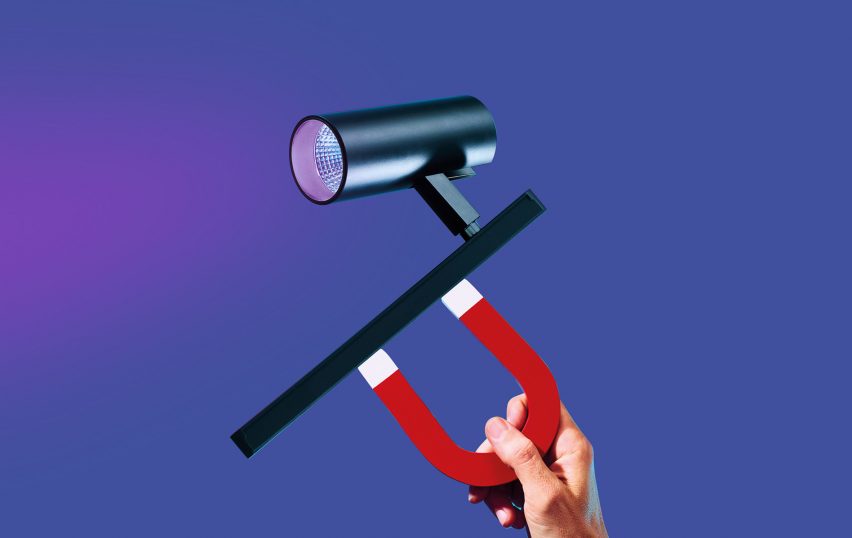
"In the presence of people, emission frequencies and doses of energy that are not harmful to the eyes and skin can be used, which nonetheless act to inhibit the growth of bacteria, mould and fungi," Artemide CEO Carlotta de Bevilacqua told Dezeen.
"In the absence of people, higher energy levels and frequencies such as UV rays can be used, which also act on viruses."
The technology can be used in a wide variety of different fixtures, although it cannot be retrofitted.
"Integralis adapts to a wide range of our products, so as to offer the ideal solution not only for sanitising a space but also for lighting performance in a variety of different environments," de Bevilacqua added.
"It can however only be integrated into new lights as it would mean rewiring the entire system of a pre-owned light."
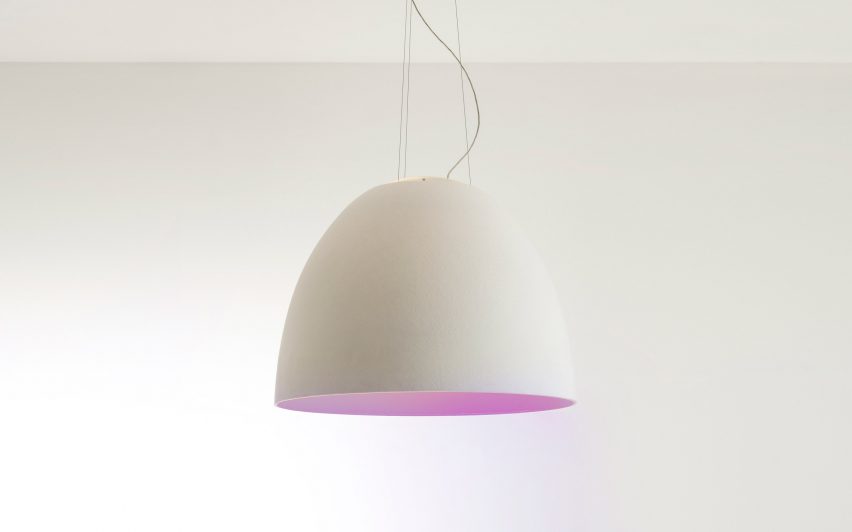
Fixtures can be controlled via the brand's Artemide App, allowing lights in rooms that are used infrequently such as bathrooms or changing rooms to constantly emit bacteria-suppressing light.
Fixtures in busier rooms can be programmed to emit short bursts of stronger UV light when nobody is present.
The technology can disinfect both surfaces and the air, de Bevilacqua claimed.
"The light acts mainly on surfaces but, in reality, it acts on everything it encounters in its path such as particles suspended in the air," de Bevilacqua explained. "This, however, would require a specific air filtering technology to guarantee its maximum efficiency."
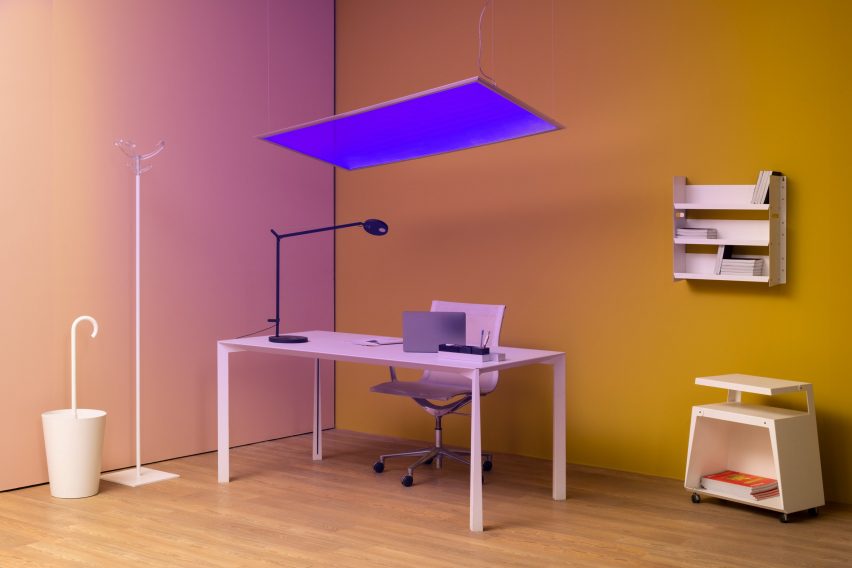
Short-wavelength UV light (UV-C) has long been used to sanitise spaces such as aeroplanes and buses in a process known as ultraviolet germicidal irradiation.
The process has received increased attention in recent months for its potential to help contain the spread of Covid-19.
It has been shown to help suppress viruses including the ones that cause the respiratory syndromes SARS and MERS by disrupting their RNA and preventing them from replicating.
However, its effectiveness is highly dependant on the right dose of UV radiation being administered for the right amount of time. This is determined by how close the UV source is to surfaces and what material the surfaces are made of.
That means that any room-scale solutions have to be administered and assessed carefully to avoid creating a false sense of security.
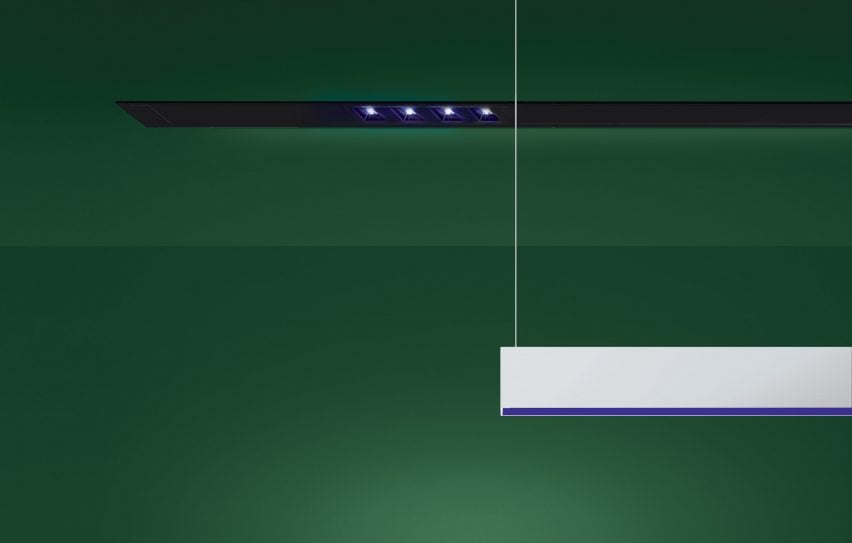
"Integralis has gone and is still going through extensive testing to be able to guarantee the level of sanitation provided by the technology," said de Bevilacqua.
Unlike cleaning products such as alcohol-based sanitisers, "light can act constantly to prevent the development of bacterial colonies," she said.
"Covid-19 certainly made us put a foot on the accelerator but we had already been working on this system continuing our research on the correlation between light and people's wellbeing," she added.